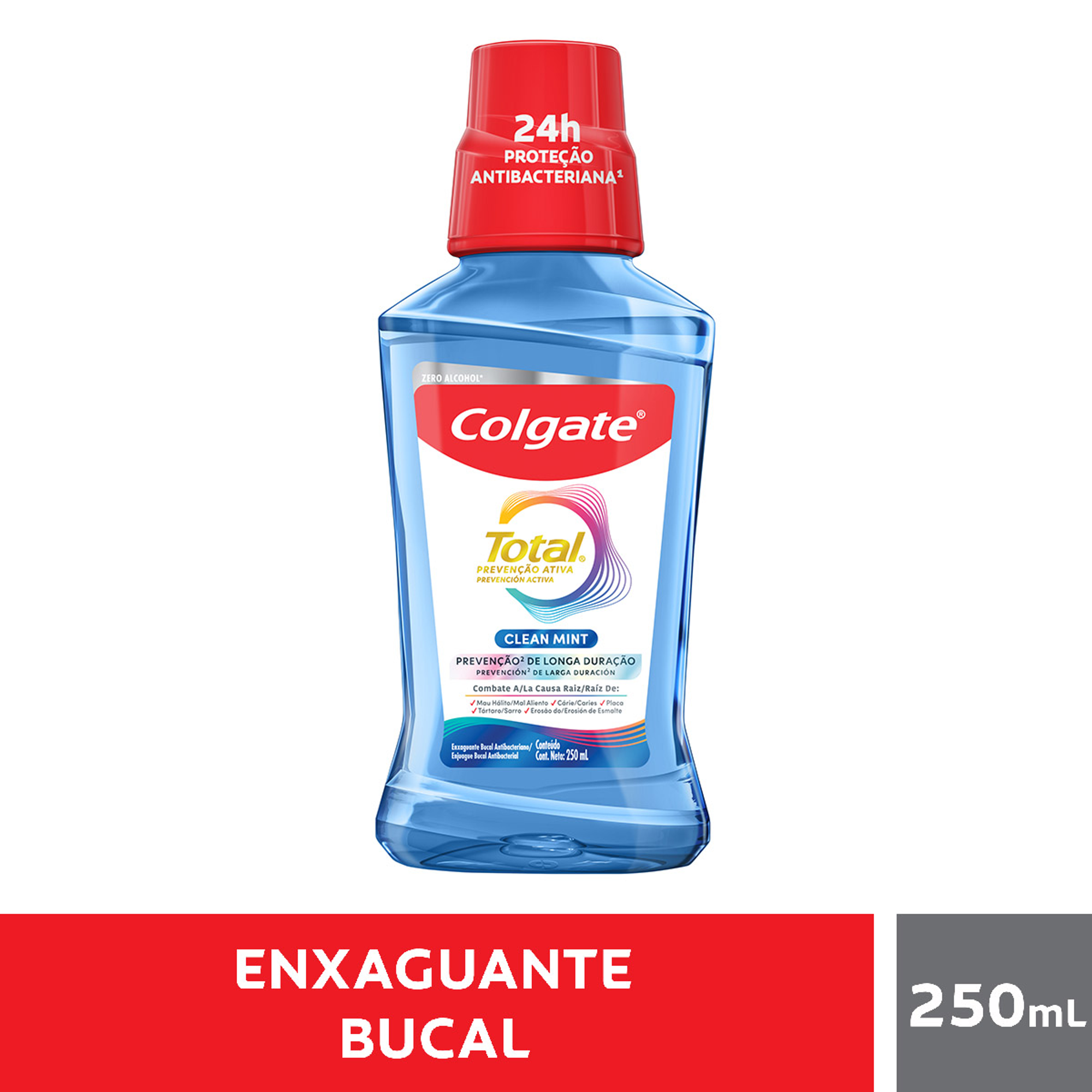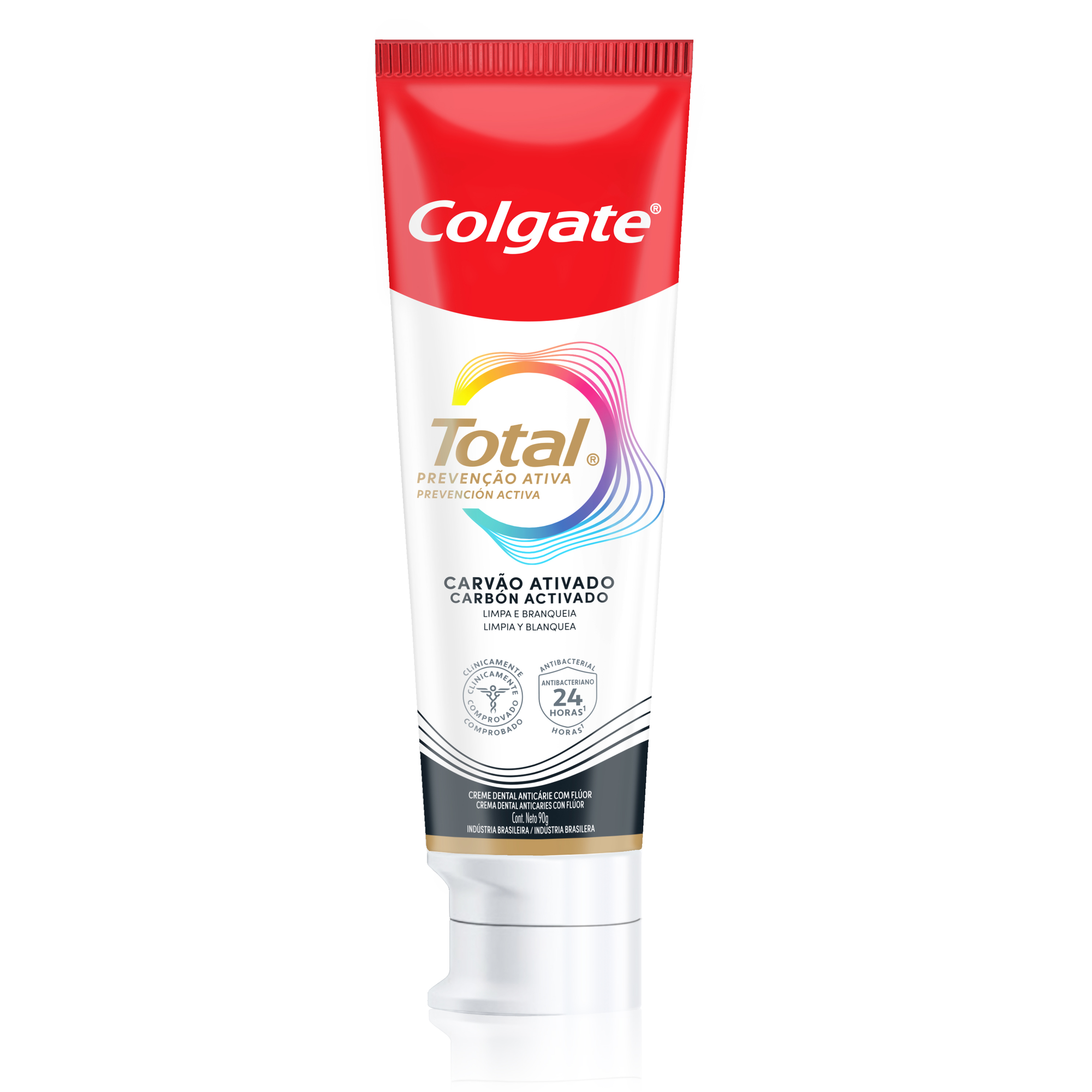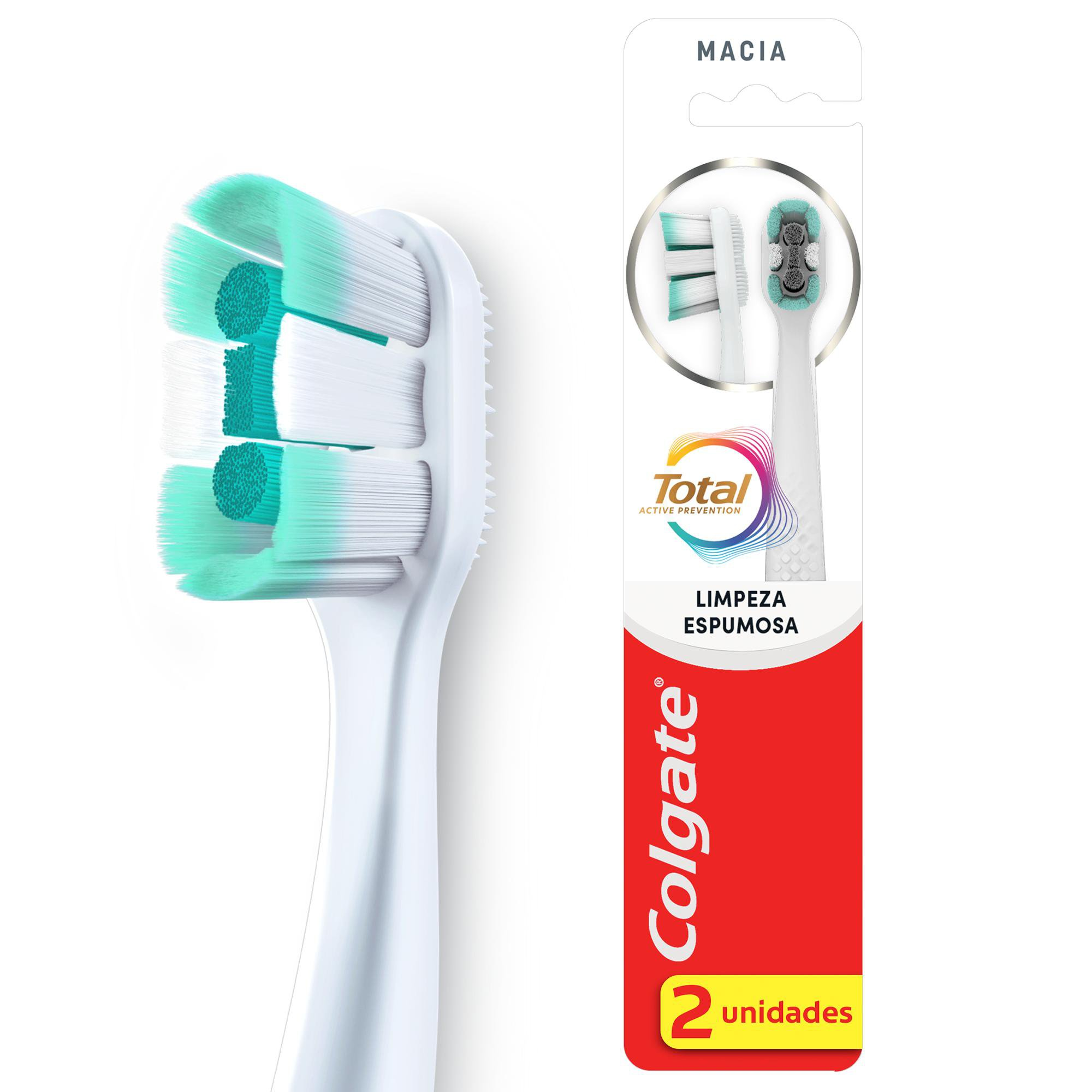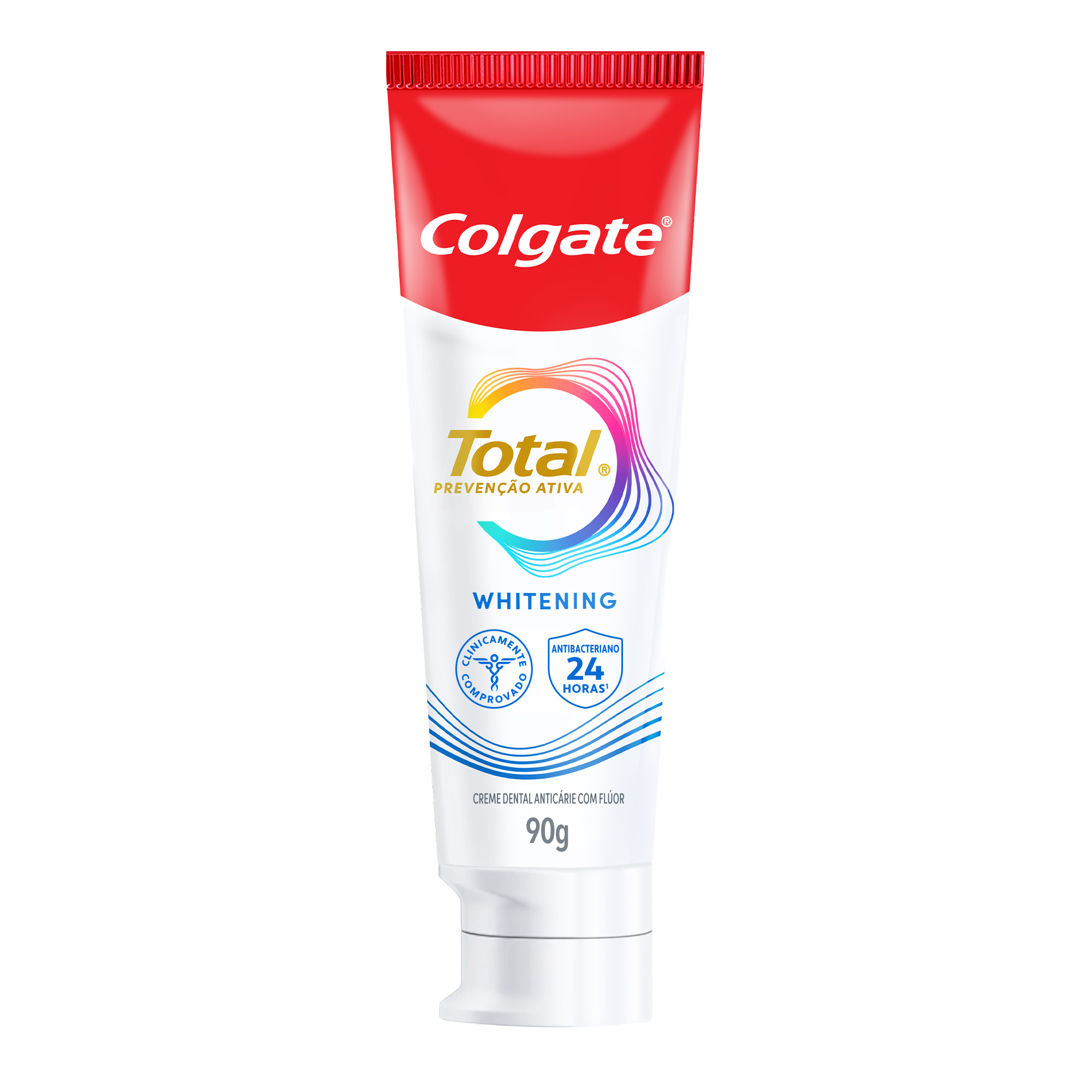
A pasta de dentes que recomendamos aos nossos pacientes pode ajudar a resolver vários problemas de saúde oral, desde que recomendamos uma que seja formulada para resolver estes problemas. Os pacientes querem soluções simples para melhorar a sua saúde oral, e se recomendamos uma pasta de dentes multi-benefícios, isto pode ajudar a capacitar os pacientes para alcançar a Saúde Bucal Integral.
Que problemas podemos combater com uma pasta de dentes multi-benefícios?
Uma Saúde Bucal Integral inclui a saúde dos dentes, gengivas, e os tecidos moles da boca. A manutenção de uma dentição intacta pode ser afetada pela pasta de dentes que utilizamos, portanto, devemos recomendar uma pasta de dentes com flúor que possa ajudar a prevenir a cárie dentária e a reforçar o esmalte. O creme dental Colgate® Total 12® oferece benefícios que ajudam a prevenir cáries, acúmulo de placa bacteriana, formação de tártaro, gengivite e sensibilidade. Proporciona um hálito fresco, protege o esmalte e remove manchas para uma boca mais saudável.
Em última análise, claro, o esmalte enfraquecido e a cárie dentária podem levar a uma maior necessidade de intervenções dentárias e tratamentos restauradores, aumentando as despesas com tratamentos, podendo causar dores dentárias e, em algumas situações, a potencial perda de dentes. As condições dentárias podem também ter impacto na estética, e trazer frustração aos pacientes. É essencial fornecer aos nossos pacientes os conhecimentos e as ferramentas para prevenir estas questões antes que se tornem um problema. Para dentes que já têm restaurações, a prevenção de doenças e condições dentárias pode ajudar a manter os resultados do tratamento dentário.
Os pacientes em risco de problemas gengivais precisam assegurar um ótimo controle de placa bacteriana, algo que uma pasta de dentes multi-benefícios pode proporcionar. Colgate® Total® 12 combate ativamente as bactérias ao longo da linha da gengiva, que é a principal causa dos problemas associados a elas. Também foi comprovado que ajuda a combater bactérias não apenas nos dentes, mas também na língua, bochechas e gengivas.
A manutenção da Saúde Bucal Integral inclui o cuidado da função e estética. As manchas dentárias extrínsecas ou a perda de dentes podem ter um impacto negativo na estética e no bem-estar de uma pessoa. A dor dentária e a perda de dentes podem ter impacto na capacidade de comer e no bem-estar de um paciente. Além disso, a halitose e a mancha dentária podem ter impacto na auto-estima. Uma pasta de dentes multi-benefícios também pode proporcionar uma remoção eficaz de manchas extrínsecas e reduz a halitose.
Saúde bucal e sistêmica
Uma boa higiene bucal é importante de uma perspectiva de saúde oral e sistêmica. Existe uma relação comprovada de duas vias entre a doença periodontal e a diabetes, o que torna importante não só para os pacientes com diabetes controlar bem os seus níveis glicêmicos, mas também para manter uma boa higiene oral e saúde oral. Foram encontradas ligações para outras doenças sistémicas e a saúde oral, tais como doenças cardiovasculares e doença de Alzheimer.
Então qual é o papel de uma pasta de dentes multi-benefício?
Colgate Total 12 é um creme dental de múltiplos benefícios para os problemas bucais mais comuns. Para pacientes que têm problemas de saúde oral específicos, estão também disponíveis variantes que abordam especificamente um determinado problema, por exemplo:
Colgate Total 12 oferece uma solução simples aos seus pacientes, para que estes apliquem facilmente na sua rotina diária de cuidados orais. Dando aos nossos pacientes os conhecimentos e ferramentas você irá habilitá-los a alcançar a Saúde Bucal Total e, em última análise, permitir a nós, enquanto profissionais dentários, construir confiança com os nossos pacientes.
Materiais Exclusivos para Uma Prática de Sucesso
Obtenha nossos conteúdos de educação contínua para apoiar você na sua prática profissional. Cadastre-se para acessar materiais para pacientes, consultório, ebooks e muito mais, totalmente gratuitos.
Materiais Exclusivos para Uma Prática de Sucesso
Obtenha nossos conteúdos de educação contínua para apoiar você na sua prática profissional. Cadastre-se para acessar materiais para pacientes, consultório, ebooks e muito mais, totalmente gratuitos.







.jpg)





